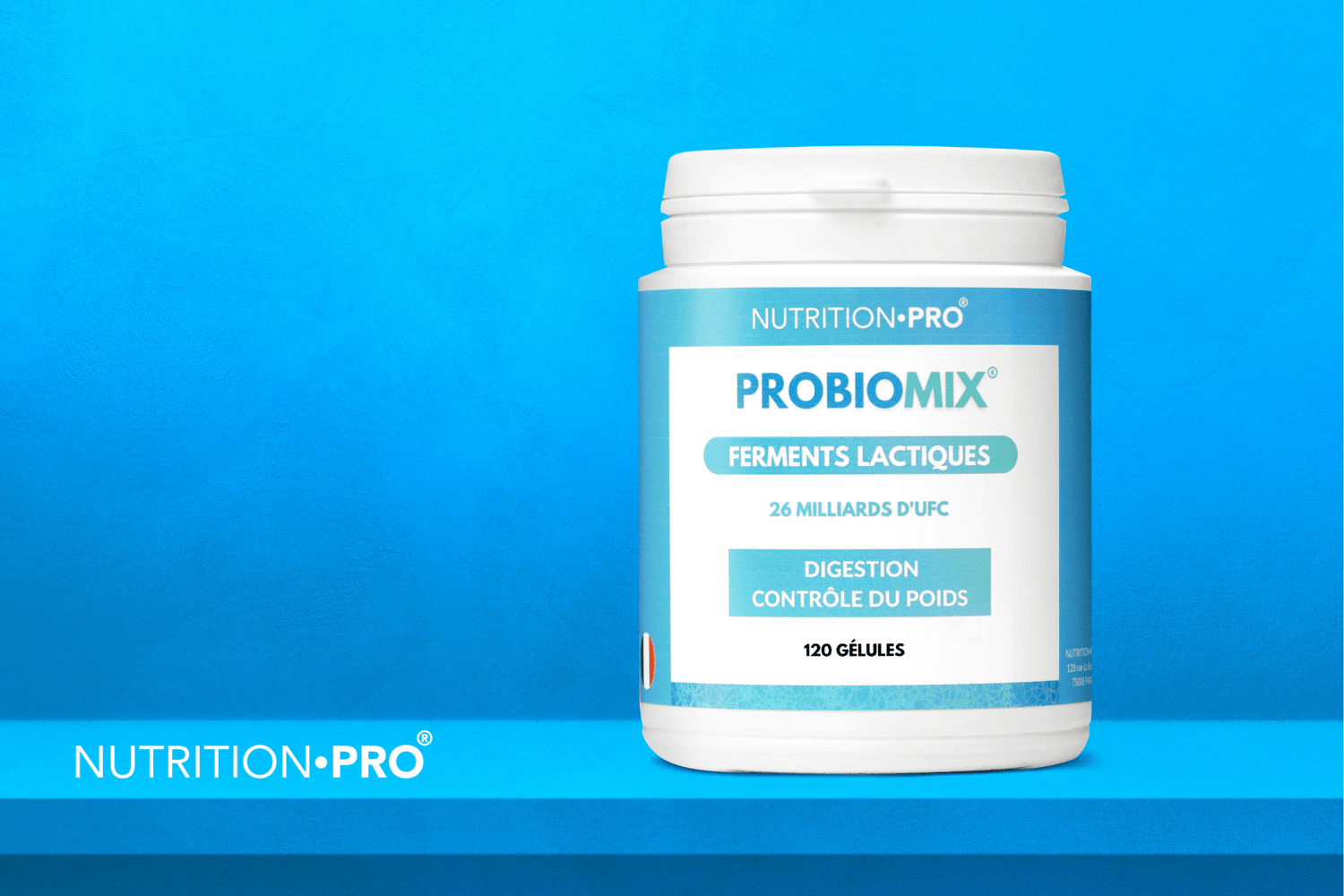Probiotics are live microorganisms that provide significant health benefits when consumed .
They are found in both probiotic supplements and fermented foods.
Probiotics improve your immune function and your digestive and heart health , among other benefits .
Several studies also report that probiotics help lose weight and belly fat .
Probiotics can help you lose weight and belly fat
A recent review of well-designed studies on probiotics and weight loss in overweight and obese people reports that probiotics can help you lose weight and lower your body fat percentage .
In particular, studies have shown that certain strains of the family Lactobacillus help to lose weight and belly fat .
In one study, consumption of yogurt with Lactobacillus fermentum Where Lactobacillus amylovorus a reduces body fat by 3-4% in 6 weeks.
Another study of 125 overweight dieters investigated the effects of supplements of Lactobacillus rhamnosus on weight loss and weight maintenance .
Women taking probiotics lost 50% more weight in 3 months compared to those taking a placebo pill. They also continued to lose weight during the weight maintenance phase of the study.
In a well-designed study, 114 adults with obesity were given either the probiotic Lactobacillus sakei, or a placebo for 12 weeks. Those who took the probiotic experienced a significant decrease in body fat and waist circumference.
Lactobacillus gasseri
Of all the probiotic bacteria studied to date, Lactobacillus gasseri shows some of the most promising effects on weight loss.
A study that followed 210 people with significant amounts of fat abdominal has revealed that taking Lactobacillus gasseri for 12 weeks reduced body weight, fat around organs, body mass index (BMI), waist circumference and hip circumference.
In addition, belly fat was reduced by 8.5%.
Other strains
Other strains of probiotics may also help reduce weight and belly fat.
In an 8-week study, overweight or obese women took either a probiotic containing strains of Lactobacillus and bifidobacterium, or a placebo, in addition to a dietary intervention.
Those taking the probiotic lost significantly more belly fat than those taking a placebo .
Another study in 135 people with significant amounts of abdominal fat found those who took Bifidobacterium animalis subsp. lactis by day for 3 months lost significantly more abdominal fat and had a reduced BMI and waist circumference, compared to those taking a placebo.
These findings were particularly pronounced among women .
How Probiotics Affect Body Weight
Probiotics seem to influence appetite and energy consumption via the production of acetate, propionate and butyrate, which are short-chain fatty acids .
It is thought that some probiotics may inhibit the absorption of dietary fat, increasing the amount of fat excreted with feces .
In other words, they allow your body to "harvest" fewer calories from the foods you eat.
Some bacteria, such as those of family of Lactobacillus , have been shown to work in this way .
Probiotics can also fight obesity in other ways, including:
- Release of appetite-regulating hormones: Probiotics can help release the appetite-reducing hormones glucagon-like peptide-1 (GLP-1) and peptide YY (PYY). Increased levels of these hormones can help you burn calories and fat.
- Increased levels of fat-regulating proteins: probiotics can increase levels of angiopoietin-like protein 4 (ANGPTL4). This can lead to a decrease in fat storage .
Strong evidence links obesity to inflammation throughout the body. In Improving the health of your gut lining , probiotics can reduce systemic inflammation and protect against obesity and other diseases.
Further research is needed to fully understand these mechanisms.
Gut Bacteria May Affect Body Weight Regulation
Hundreds of micro -organisms reside in your digestive system.
The majority of them are friendly bacteria that produce several important nutrients, including vitamin K and some B vitamins.
They also help break down fiber , which your body can't digest, turning it into short-chain fatty acids like butyrate .
There are two main families of good bacteria in the intestine: bacteroidetes and firmicutes. Body weight appears to be related to the balance of these two families of bacteria .
Human and animal studies have shown that people of moderate weight have different gut bacteria than those who are overweight or obese .
In the majority of these studies, obese people had more firmicutes and fewer bacteroidetes, compared to people of moderate weight.
However, several studies have failed to find a link between the firmicutes/bacteroidetes ratio and obesity .
Obese people tend to have less diverse gut bacteria than lean people. Additionally, obese people who have less diverse gut bacteria tend to gain more weight than obese people who have more diverse gut bacteria .
Some animal studies also show that when gut bacteria from obese mice were transplanted into the intestines of lean mice, the lean mice developed obesity .
Some probiotics can prevent weight gain
Losing weight is not the only way to fight obesity. Preventing unwanted weight gain in the first place can be even more helpful in avoiding obesity.
In a 4-week study, taking a probiotic formulation called VSL#3 reduced weight gain and fat gain in people on a diet that provided them with an additional 1000 calories per day .
People in the probiotic group gained less fat, although they experienced no significant changes in insulin sensitivity or metabolism.
This indicates that certain probiotic strains may prevent weight gain on a calorie-restricted diet. However, this needs to be investigated further.
The essential
Probiotics offer a wide range of health benefits .
However, their effects on weight are mixed and seem to depend on the type of probiotic.
Evidence indicates that Lactobacillus gasseri and Lactobacillus rhamnosus strains can help with weight and belly fat loss .
Additionally, a probiotic supplement blend called VSL#3 may reduce weight gain in people on a high-calorie diet.
However, there are many other reasons to take a probiotic supplement .
They can improve your digestive health and cardiovascular risk factors, reduce inflammation, and even help fight depression and anxiety.














